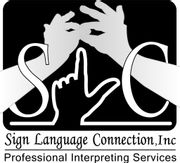What to Know About Court Sign Language Interpreters

Your ability to understand courtroom proceedings is critical to your full participation in legal matters. This means Deaf individuals must have a way to understand what’s being said by lawyers, judges, and other people present. If you have an upcoming court appearance, take a moment to learn about the role of Sign Language interpreters in legal disputes.
A Guide to Having a Sign Language Interpreter in Court
Who Has the Right to an Interpreter?
Under the Americans with Disabilities Act — ADA — any public place cannot discriminate against anyone who is Deaf. This means that participants in court— including the victim or person who was harmed, and the person blamed or charged with breaking the law - have the right to an interpreter. All criminal, civil, family, juvenile, traffic and probate courts are included. Additionally, witnesses who testify in court, parents of juveniles, and jurors can request an interpreter. Even people who wish to observe proceedings can request an interpreter and the court must provide one.
What Is the Process for Getting an Interpreter?
The court must accommodate your need for an interpreter, but it’s crucial to note that the process for requesting one varies by state. In some states, the person who requires assistance must submit a written request to the court at least 30 days before their appearance; for other states, only five days’ advance notice is required. A state-by-state list is available online through the American Bar Association. Calling the clerk for the court where you are going, usually is a good first step.
What Can You Expect During the Court Process?
The interpreter is an officer of the court. They are required to interpret anything that is said in court both in ASL and English. Sometimes the court will ask the interpreter to assist you and your attorney before or after a court proceeding. This is usually a short meeting to review what will happen in court or what will happen next. It is your attorney’s responsibility to hire an interpreter when you need more in-depth conversation.
The proceedings interpreter may need additional information from the court or the attorneys to ensure they make an accurate signed translation. They may need to speak with you too, to get familiar with specific signs that they may need in court to make sure you understand.
The interpreter should not interpret for you in court and also interpret outside appointments for you while your case is going through court.
How many interpreters will there be?
Sometimes one interpreter is adequate, however if there are Deaf people against each other, it is best practice to have separate interpreters. This prevents any conflicts. Often, Certified Deaf Interpreters are very helpful if there is any question of your being able to participate fully.
Consistent interpreters are best for each court appearance. The interpreter becomes familiar with the case and doesn’t need to gather pertinent information each time they are there for you. If you are not getting consistent, reliable interpreters, tell the court.

If you’re seeking a sign language interpreter, contact the team from Sign Language Connection. Serving Rochester, NY, and the surrounding areas, this team comprises 150 certified ASL interpreters and offers 24/7 service. Explore their services online or call (585) 454-4220 to speak with an associate.
About the Business
Have a question? Ask the experts!
Send your question

